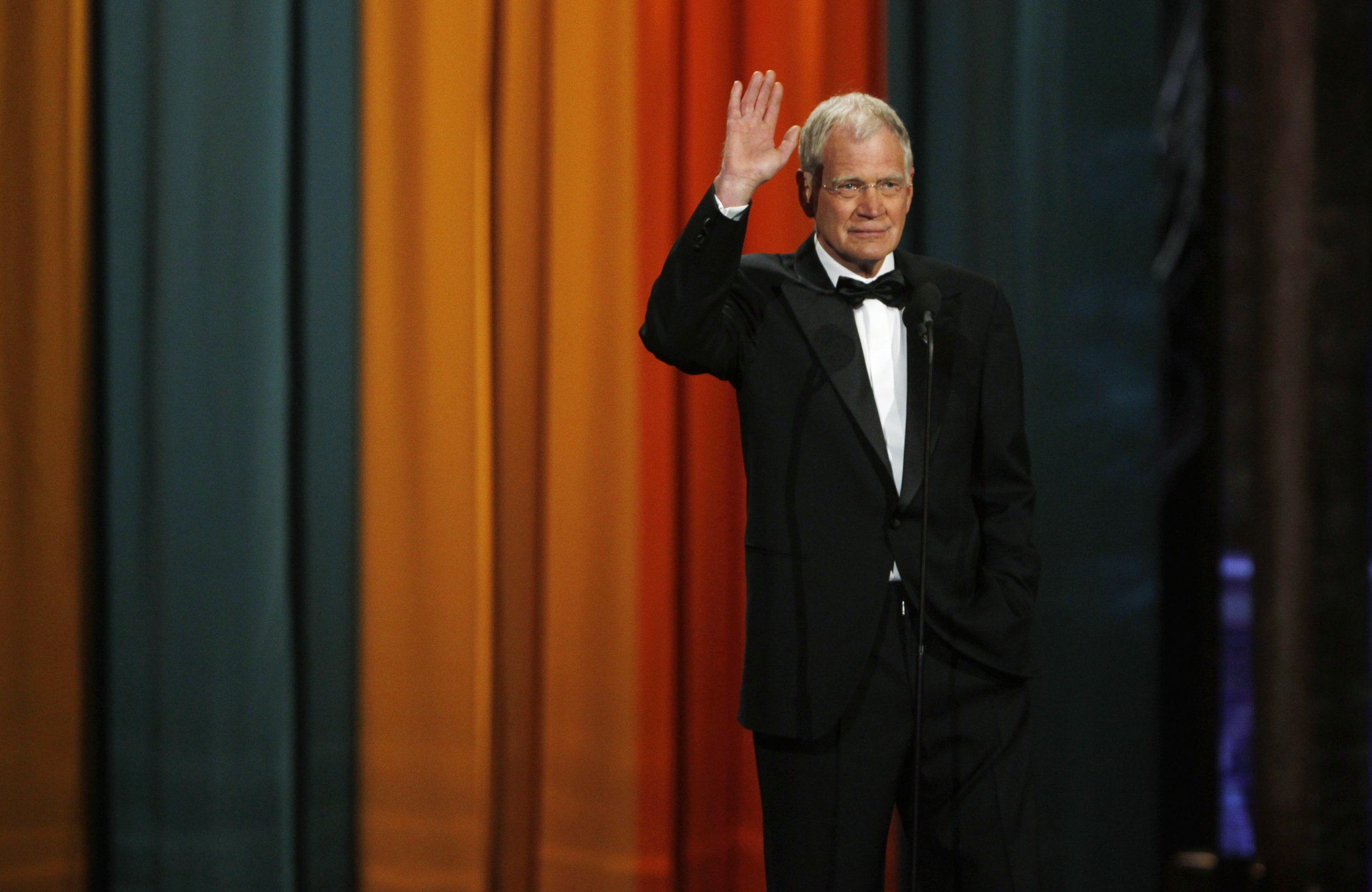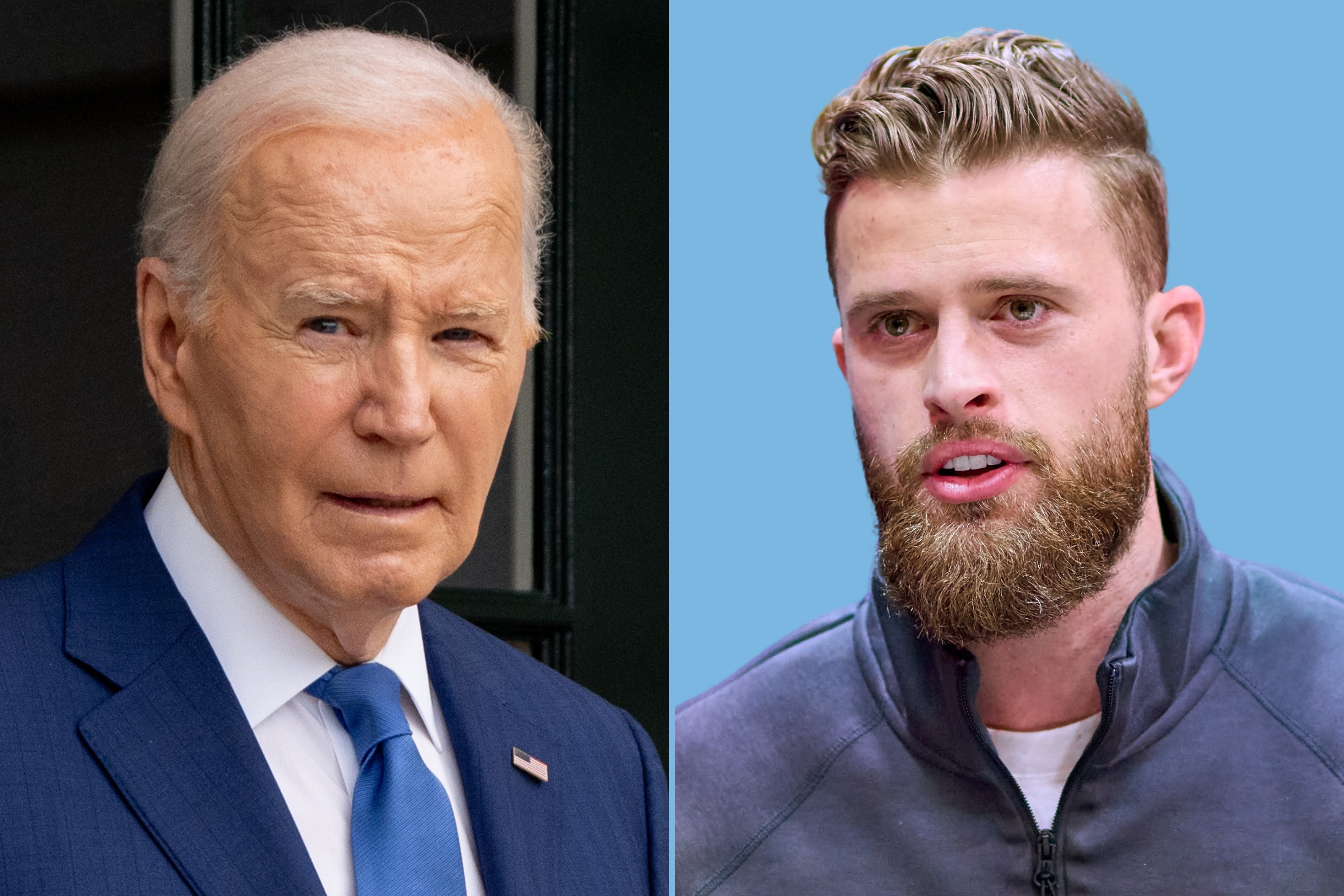
Most sports columnists are remorselessly jocular, wagging their tails at every predictable turn. Just crack a hyperbolic one-liner, think for a few seconds and crack an even more extravagant one...and another...and another.
All equally unfunny.
In a sea of wiseacres, handkerchief-wringers and designated hotheads, no pundit is wittier than Steve Rushin, who sends up biweekly flares from his back-page column in Sports Illustrated. "His prose is marked by smarts, even wisdom, and delivered with poetic humor and easy grace," says a former colleague. "A web of barbs and allusions anchored by a couple of running jokes, a triple pun and a final perfect landing—like an Olympic gymnast who comes to earth, without a tremor and an extra hop."
It should come as no surprise, then, that the 48-year-old Rushin was once asked to submit a Top 10 list toLate Show With David Letterman. Which he did, in what turned out to be one of the most disharmonic convergences of the 1990s.
We caught up with Rushin at his Connecticut home as he waited for a baby sitter.
What's your earliest memory of David Letterman? Did you grow up watching him? If so, why did your parents let you stay up that late?
I remember seeing Letterman do stand-up on The Tonight Show. Or, it's probably more accurate to say, I remember hearing him do stand-up, because the Carson show existed mainly as sound leaking under my bedroom door at night. I'd hear Johnny telling jokes and my dad laughing at them. Carson was exactly my dad's comic sensibility, and so it became mine as well. My dad worked for 3M and traveled a lot, and he once came back from Hong Kong and wordlessly handed me 30 pages torn from the White Pages in his hotel, and I looked and it was all the Chins in a Chinese phonebook. Because he'd heard me laughing at someone on The Tonight Show saying, "He had more chins than a Chinese phone book."
I do remember Letterman doing a joke on Carson about a dog food commercial that boasted its product was "All beef, with not a speck of cereal." And Dave said, "My dog spends the day rooting through the garbage and drinking out of the toilet. I'm not sure she's gonna mind a speck of cereal." Later, when I was a little older and could stay up to watch some of The Tonight Show, Dave guest-hosted for Johnny. And I remember then, even as a 12- or 13-year-old, thinking "guest host" was an oxymoron. So the Carson show was such a big influence that I think it even got me interested in words and wordplay.
You both grew up in the Midwest. What's that got to do with anything?
Like Letterman, my dad was from Indiana, and I grew up in Minnesota, and I think both places share a healthy contempt for showoffs and loudmouths (not that those people are beloved elsewhere). I'd watch the news with my dad and he'd quietly mock the anchors. An anchorman might say, "Police are searching for..." and my dad would say in the anchorman's voice "the man who gave me this haircut." This was in the real Ron Burgundy '70s. And I would laugh and start doing it myself.
That's what Letterman did. He mocked everything and everyone in show business, even though he was at the top of show business. He was in it, but not really of it, and that's one thing I came to love about him. I mean, you can't sit there and interview Cher and pretend you're not in show business, but he managed to pull it off somehow. And I think that, and his constant self-deprecation, were the most Midwestern things about him.
Do you guys have similar comic sensibilities?
Only in the way that a Nirvana tribute band shares the same sensibilities as Nirvana. We don't share a comic sensibility. I took his comic sensibility. Carson's too. And my dad's. But they're all from the same tree.
What differentiates him from the other talk show hosts? I'm not thinking Regis.
In the beginning, he just looked different from other hosts. He was a lot younger, and wore Adidas wrestling shoes with his khakis and double-breasted blazer. He obviously loved the conventions of showbiz enough to mock them constantly—everyone was introduced as "the lovely and talented" so-and-so—but no guest was allowed to come on the show and just shill for their movie, or they did so at their own peril. They would set up the clip for their new movie, and Letterman would roll stock footage of a monkey scrubbing a greyhound.
He listened in interviews and played off the answers. Leno was always looking down at his cards while the guests spoke. And while it seems a strange thing to say about a guy who was on national TV 6,000 nights over 33 years, he was somehow self-effacing. He hated flattery, deflected praise, seldom did interviews and ridiculed self-aggrandizement. And it is obviously genuine, despite his name appearing on a giant marquee on Broadway.
At some point in your youth did you want to write for the show?
I was in college from 1984 to 1988, when Dave's NBC show was the best thing on TV, and one of the best things ever on TV. The Velcro suits, the confetti cannons, the Stupid Human Tricks, the Monkey Cam, Larry "Bud" Melman, the parade of weird guests—there was a cable-TV psychic named Ostaro who was a regular—and I would watch it on a little black-and-white TV on my roommate's desk while everyone else was out doing whatever college kids do at 12:30 at night. And it looked like the most fun place in the world. Not just the show but New York—it made me want to live there.
And so when I got a job out of college at Sports Illustrated, in Rockefeller Center, kitty-corner to 30 Rock and Hurley's—the bar in the lobby that occasionally featured in the show—it was a thrill just to be working across the street from that place. Maybe Dave would lean out the window with a bullhorn and yell at someone on the Rockefeller Plaza skating rink. And I remember going to the Old Town Bar on 18th Street just because it's featured in the opening credits of the show.
Assuming you were recruited to write for Letterman, how did that go down?
I had started writing for Sports Illustrated, which was really my dream job growing up. But the writing probably read like I was auditioning to write for Letterman, or '70s-era Carson. In one of the first deadline stories I wrote for SI, on a minor-league golf tour, I mentioned that the parking lot had more vans than the Amsterdam White Pages. And even though that was 1990, and I didn't realize it at the time, I was just auditioning—in print, in the pages of a sports magazine—for a spot on The Tonight Show, circa 1978.
So eventually an agent from CAA contacted me and said The Late Show on CBS was looking for new writers and could I submit a couple of Top 10 lists and an idea for a remote piece, in which Dave would leave the studio and do something funny.
If my source is correct, your trial Top 10 list was something like "10 salad dressings you should never order in a restaurant." Can you remember them?
Your source is correct. It was the Top 10 Least Popular Salad Dressings, and I can't remember them all, but it went something like this:
10. Mustang Ranch
9. Tangy Cheddar 'N' Kevin Bacon Bits
8. Randy Newman's Own
7. Pennzoil & Vinegar
6. Sid Caesar
5. Bleu Cheez
4. Riker's Island
3. Vinaigretzky
What happened after you submitted your jokes, and how did Dave react?
Nothing happened. And by "nothing" I mean there was no reaction other than the chirping of crickets, the tumbling of tumbleweeds and the croaking of a single bullfrog. Somewhere in the distance, a lone crow may have cawed. The CAA agent said, "Dave read them on the plane to L.A." That was it. I like to picture him in a middle seat in coach, grimacing at the Top 10 list on his tray table while wrestling a guy for his share of the armrest.
Dave used to do a segment called "Brush With Greatness," in which an audience member would talk about standing next to Tom Selleck at a urinal or something. I've met plenty of world-famous people in the years since, but I still think of Dave reading my Top 10 list on a plane to L.A. as my "Brush With Greatness."
Any funny interactions with him or writers from the show?
I've never met the guy. Sports Illustrated asked me to do a story on him once, pegged to the Indianapolis 500, and he very politely declined through one of his producers. It was almost certainly the right call on Dave's part. I would have been like the flop-sweating Chris Farley character on SNL, interviewing Paul McCartney: "Remember that time you were in the Beatles? That was awesome."
Were you ever a member of Dave's audience?
No, but my wife was a guest on his show in 1995, after her University of Connecticut women's basketball team won the national championship. Dave said, "Please welcome, from the University of Kentucky, Rebecca Lobo." Kentucky and Connecticut are not close, except phonetically, and it's all she really remembers of the appearance.
Any favorite Letterman bits?
I remember a "Top 10 Least Popular Exhibits at the Baseball Hall of Fame," which included "Steve Garvey's bed and on-deck circle." When GE bought NBC, Dave tried to deliver a fruit basket to his new bosses at the General Electric building. He was intercepted by security and an army of PR people and told he didn't have authorization to deliver a fruit basket. "Gee, it's gonna be fun to work for these people, isn't it?" Dave said. And we all saw how right he turned out to be.
I also loved his annual Halloween sketch, when he'd answer the doorbell and kids would appear in costume dressed as the Gabor sisters or something. It was a very Carson-like sketch, where the fun was just Dave's reaction.
Unfavorite?
There were some recurring bits that ran for days and days, or weeks and weeks, that would eventually get old. But I think that was sometimes their intent—to annoy viewers. Annoying the viewers seemed to amuse Dave from time to time. I remember a segment called "Will It Float?" that used to drive my dad nuts in an "Oh Jesus Not This Again" sort of way.
Uncommon Knowledge
Newsweek is committed to challenging conventional wisdom and finding connections in the search for common ground.
Newsweek is committed to challenging conventional wisdom and finding connections in the search for common ground.
About the writer
Gogo Lidz was 19 when her first feature story was published in the Los Angeles Times in 2004. She wrote freelance for ... Read more
To read how Newsweek uses AI as a newsroom tool, Click here.





